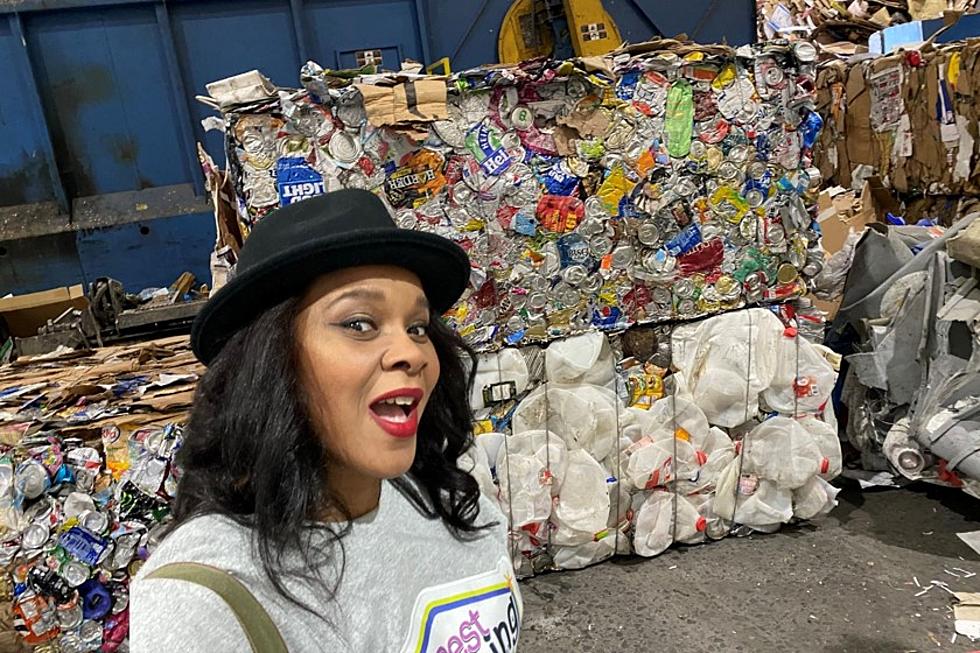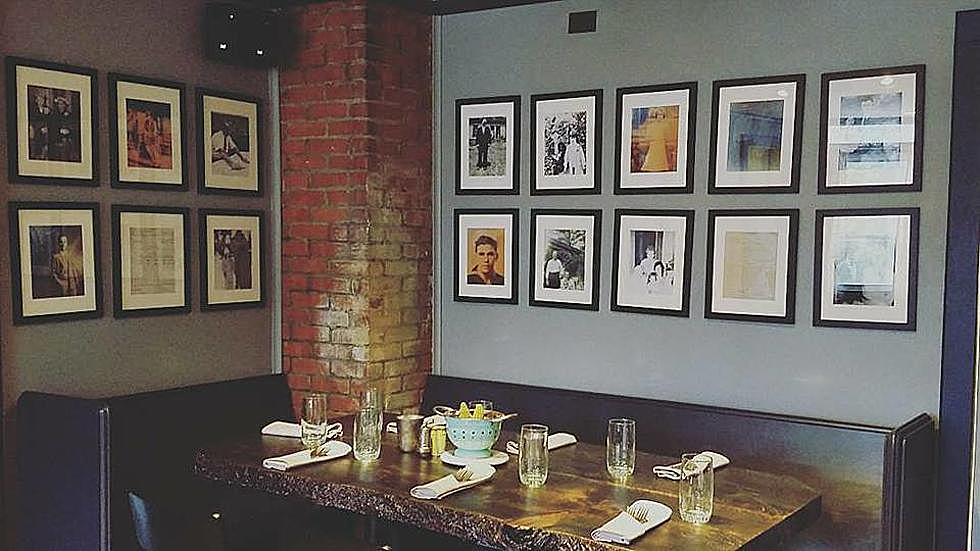
Trash Talk with Envy McKee: What You Need to Know About Recycling, Composting and HHW
Here right around Earth Day, it's time to get serious about recycling.
I recently toured the Oneida-Herkimer Solid Waste Authority, and it was so eye-opening to see what happens with our trash after we set it out on the curb. They do so much more than sort plastic, metal, paper, and glass into big bales, and market those products to recycling mills. They also offer composting and take household hazardous waste like paint, herbicides, sealants, and all those other things you might find when cleaning out your basement or garage.
I was thrilled to hear that we here in Oneida and Herkimer counties have a recycling rate of about 52 percent, compared to the national average of about 30 percent, but I also talked with Recycling Coordinator Eileen Brinck about ways we can build on that success:
Envy: Can you talk a little bit about why recycling is so important?
Eileen: The things that make up our recyclables are all things that can be used again - plastic, metal, paper, and glass. All of these things can be used more than once, and that's important because if we didn't recycle them, we'd need to go out and get all of the resources to make them again. We'd have to cut down more trees, we'd have to mine more metal, and we'd have to pull more crude oil out of the ground to make more plastic.
Envy: And we are starting to recognize that that is not sustainable. So tell me: What can be recycled?
Eileen: We accept all paper, plastic, metal, and glass all in one bin. You don't have to separate out your paper or your cardboard from anything else. It can all go in one bin as mixed recyclables.
Envy: Is there anything we have to do on our end to get our trash ready for recycling?
Eileen: One of the most helpful things you can do is rinse out any food containers. You don't have to go crazy with your peanut butter jars, we understand things can be tricky, but if you want, use a bit of soap and water. That really helps make sure that the buyers of our recyclables keep coming back to buy them — which ensures that they get made into new things.
Envy: Why else is rinsing them out important?
Eileen: It helps keep everything clean. We do have a very clean facility here even though we're dealing with garbage and recycling. And it helps make sure that recycling mills keep coming back to buy our recyclables because we have a very low contamination rate. They know that they don't need to do that many extra steps to turn them into new things.
Envy: I notice that you have some bagged compost over there. As someone who is a gardener (right now I have an imaginary garden but in my imaginary garden I have lots and lots of compost that I use for my vegetables) — first of all, what can we do to contribute to the compost? And what is the composting process?
Eileen: We have yard waste compost, or green waste compost that we make out of leaves, branches, and twigs. If you want to contribute, you can bring us your yard waste and we turn it into compost. About 8-12 months later, we bag it and we have it available in bulk. You can purchase that and add it back into your garden to help your plants grow stronger. Click here to learn more.
Envy: I'm getting some before I leave here, but there's something else I'm curious about. Inquiring minds want to know: What is HHW?
Eileen: HHW stands for household hazardous waste, and that includes things like paints, pool chemicals, motor oil — really things that need a safer way to dispose of than putting in your garbage bag or recycling bin. We accept them here at EcoDrop Utica from April 1 to Sept. 30. Click here for hours and specifics on what is accepted.
Of course, properly recycling, disposing of hazardous waste safely, and composting is something we can do all year — not just around Earth Day. If you have any other questions, check out ohswa.org. That website is a wealth of information!

